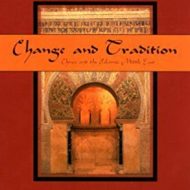I’m a senior music ed major, and in the last 3 years I’ve spent a lot of time developing my personal philosophy for music education. Something that’s become really important to me is cross-cultural and cross-curricular teaching—basically, using music to connect to other subjects and other cultures. Music is a unique and powerful tool in learning about other humans. I’ve been thinking about this in the context of this class since our class discussion earlier this semester about “good” music and music from other cultures. I’m in a class right now about the history and philosophy of music education, and we have a lot of discussions and readings on what makes “good” music. It could be the complexity of the composition. It could be the ability to easily pick up on it and sing along. It could be the rich history from its origin. It could be how well the rhythm section grooves. It could be the tonality it’s built on, like the scales and harmonies used. In short, it could be a lot of different musical aspects—so how do we determine what’s good?
I think there’s a cultural element to this. I remember talking in class about hearing music and knowing what it culture it sounds like it’s from, based on certain musical elements like the tonality, the instruments used, the roles of these instruments, etc. Cultures sometimes gravitate toward patterns and create a lot of music in the same vein. I think there is a cultural element to what fits in these boxes, what is perceived as “good”, and it continues as generation after generation of musicians are raised in the same culture.
But there is also a personal element to determining “good” music. It’s your taste. Everyone has different musical taste, and no one is right or wrong. In my field, teachers determine “good” repertoire, that they believe has educational value, and teach it based on their own set of qualifications. The same basic musical elements are present in all different songs and types of music—you just decide in what order they’re important to you.
I’m also in a very cool class right now called Music in Global Contexts, where the professor has talked about the danger in the cliché “music is the universal language”. My professor points out that music is not a universal language, but a universal practice—it is present in cultures all around the world and all throughout history, but in many different contexts and for many different purposes. You don’t automatically understand the music of different cultures, in the way the words “universal language” would imply. The term “world music” is also kind of problematic, as it separates music not created in the Western tradition as inherently some type of “Other”. So I think teaching about other cultures through music is important and effective, but it has to be done thoughtfully and sensitively.
The Smithsonian Folkways website is one of my favorite resources for learning about how to teach music from cultures around the world. It can be tough to introduce students to music of other cultures without reinforcing stereotypes or otherwise putting them into the boxes we’re familiar with, but I think the resources here generally do a pretty good job. Here is a really cool elementary general music lesson plan about the music of China, if you’re interested in checking it out!
This became a lot wordier than I anticipated, so maybe I’ll save my thoughts on this lesson plan for another time. But this is what I’m really excited about, so let me know if you want to talk about music/music education in multicultural contexts more in the future!
